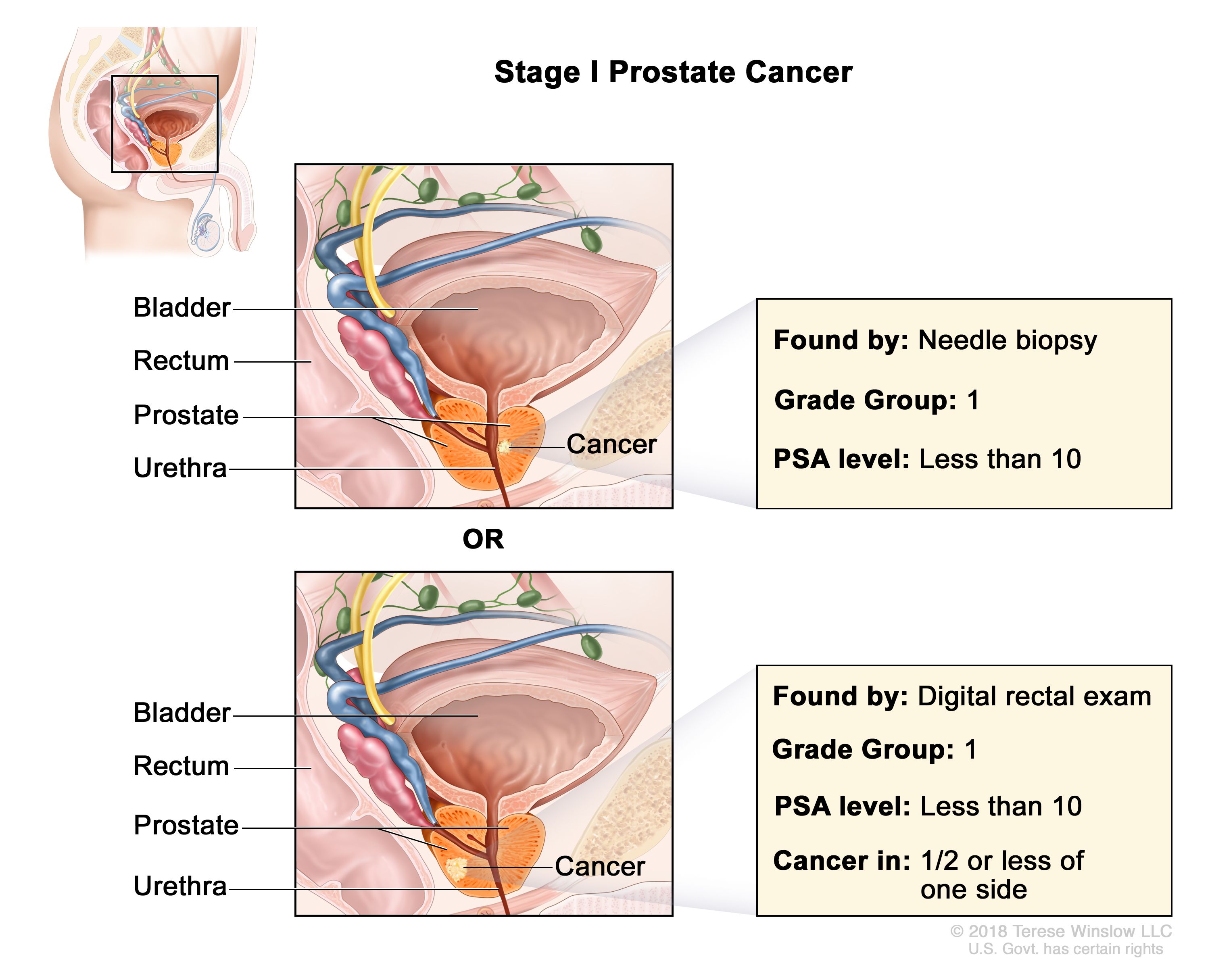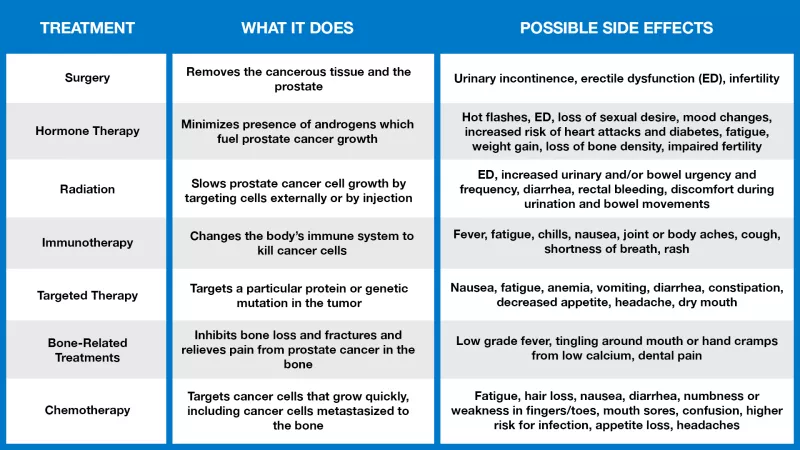Best Prostate Cancer Doctor for Dummies
Wiki Article
Prostate Cancer Cells Treatment: Surgical and Non-Surgical Approaches Explained
When faced with a prostate cancer cells medical diagnosis, the variety of treatment choices can appear overwhelming. This thorough overview intends to drop light on the complexities of prostate cancer cells treatment, offering insights right into the complexities of each technique to equip people in making educated choices regarding their health and wellness.Surgical Treatment Options
When thinking about surgical therapy options for prostate cancer cells, individuals and healthcare providers often weigh the advantages and dangers linked with various procedures. This procedure is commonly recommended for individuals with localized prostate cancer and offers the potential for a remedy.
Another surgical alternative is robotic-assisted laparoscopic prostatectomy, a minimally intrusive treatment that utilizes a robotic system to help the cosmetic surgeon in getting rid of the prostate. This strategy can lead to much less blood loss, shorter medical facility stays, and quicker healing times compared to typical open surgical treatment. However, it also lugs the risk of issues such as infection and injury to bordering body organs.
Inevitably, the choice of surgical treatment for prostate cancer cells depends upon various aspects consisting of the phase of the cancer cells, the client's overall health and wellness, and their preferences pertaining to prospective adverse effects and recuperation times. Consulting with a multidisciplinary team consisting of urologists, oncologists, and radiation oncologists can assist clients make informed decisions concerning the most suitable medical technique for their private situation.

Non-Surgical Therapy Alternatives
Taking into consideration alternatives to medical interventions, non-surgical therapy options for prostate cancer cells offer people extra opportunities for handling the illness while reducing possible surgical risks. One non-surgical approach is Active Monitoring, where people with low-risk prostate cancer cells are kept track of closely through regular examinations, blood examinations, and biopsies, without going through prompt treatment. This approach aims to prevent unneeded therapy and its affiliated side effects, such as incontinence and erectile dysfunction.An additional non-surgical option is Radiation Therapy, which makes use of high-energy rays to kill cancer cells (Best prostate cancer hospital in Mumbai). This therapy can be delivered on the surface making use of a maker (Exterior Light beam Radiation) or inside via little contaminated pellets put near the lump (Brachytherapy) Radiation treatment can be made use of as a main treatment or in combination with various other treatments, such as hormone therapy
Furthermore, Hormone Therapy is a non-surgical approach that aims to minimize the degrees of male hormonal agents (androgens) in the body, as these hormones can sustain the growth of prostate cancer cells. By decreasing or blocking androgen degrees, hormone therapy can reduce down cancer cells progression and alleviate signs in innovative situations.
Robotic-Assisted Surgery for Prostate Cancer

One of the key advantages of robotic-assisted surgery for prostate cancer is its ability to reduce the danger of complications and side effects typically associated with open surgical procedure, such as blood loss, pain, infection, and prolonged recuperation times. On the whole, robotic-assisted surgical procedure stands for a cutting-edge strategy to prostate cancer cells treatment that incorporates technical improvements with surgical knowledge to maximize patient outcomes.
Radiation Treatment for Prostate Cancer
Making use of sophisticated radiation technology, radiation treatment plays an essential role in the thorough therapy of prostate cancer. Radiation treatment makes use of high-energy radiation to destroy cancer cells and shrink growths. It is a common treatment alternative for prostate cancer, either as a key treatment or in mix with surgery, hormonal agent therapy, or radiation treatment.There are 2 major kinds of radiation treatment utilized for prostate cancer cells: outside beam of Website light radiation treatment (EBRT) and brachytherapy. These seeds produce radiation that kills the cancer cells over time.
Radiation therapy for prostate cancer is very reliable, with high cure rates, especially for localized cancer. It is likewise a valuable alternative for individuals that may not be ideal prospects for surgical treatment. Like any kind of therapy, radiation treatment click site might have negative effects, such as urinary troubles, exhaustion, and skin inflammation, however these are usually short-term and workable.
Hormone Treatment for Prostate Cancer
Hormone treatment is a typically utilized therapy approach for prostate cancer cells monitoring. Prostate cancer is frequently sustained by the male hormone testosterone. Hormonal agent treatment, additionally understood as androgen deprivation treatment, intends to decrease testosterone levels in the body or block the hormonal agent's impacts on the prostate cancer cells, therefore slowing down the condition's development. This treatment is particularly efficient in sophisticated stages of prostate cancer, where surgery or radiation treatment may not suffice.There are various sorts of hormonal agent treatment for prostate cancer cells, consisting of medications that reduced testosterone levels (such as luteinizing hormone-releasing hormone agonists and villains), or medicines that obstruct testosterone from reaching cancer cells (like anti-androgens) Hormonal agent therapy can be made use of alone or in combination with various other therapies like radiation treatment, depending upon the stage and aggression of the cancer.
While hormonal agent treatment can successfully control prostate cancer development, it might feature side impacts such as hot flashes, loss of sex drive, erectile disorder, and weakening of bones - Best prostate cancer doctor in Mumbai. Routine tracking and discussions with doctor are critical to manage these side effects and guarantee the therapy's performance
Verdict
In verdict, the treatment alternatives for prostate cancer consist of medical and non-surgical strategies such as robotic-assisted surgical treatment, radiation therapy, and hormone therapy. Each method has its very own benefits and dangers, and the have a peek at this website selection of treatment depends on different factors such as the phase of cancer and general wellness of the patient. It is necessary for individuals to review these alternatives with their healthcare provider to identify the most ideal strategy for their private situation.
Using innovative radiation technology, radiation therapy plays an important duty in the thorough therapy of prostate cancer cells. It is a common therapy choice for prostate cancer cells, either as a main therapy or in mix with surgery, hormonal agent treatment, or radiation treatment.
Radiation therapy for prostate cancer cells is highly efficient, with high remedy rates, particularly for localized cancer cells.Hormonal agent therapy is a commonly utilized treatment technique for prostate cancer cells management.In verdict, the treatment choices for prostate cancer consist of medical and non-surgical approaches such as robotic-assisted surgical treatment, radiation treatment, and hormone treatment.
Report this wiki page